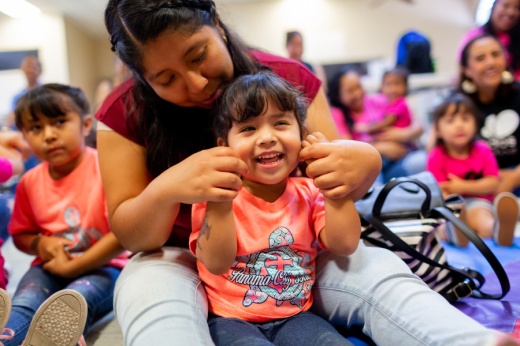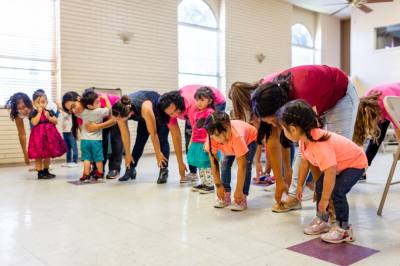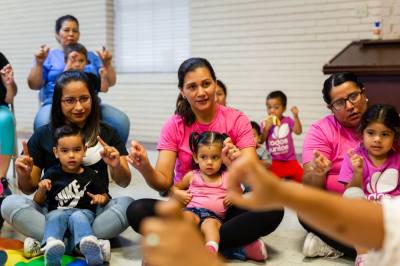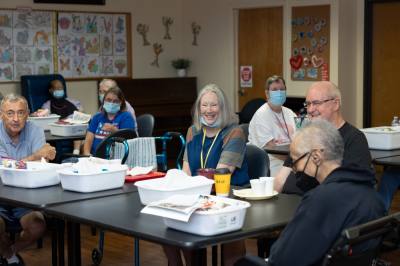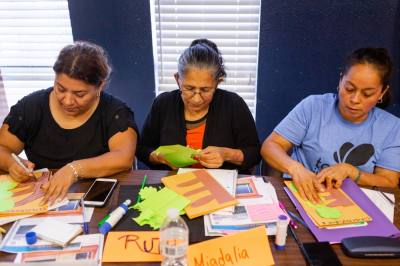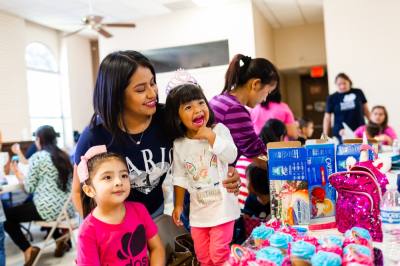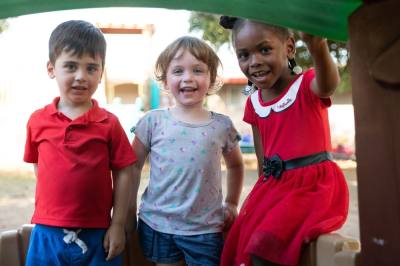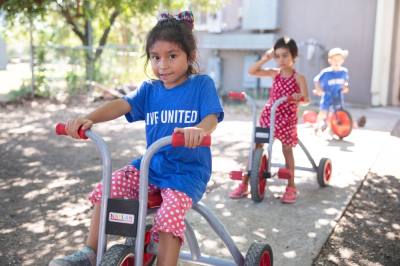Today, everyone feels the effects of high cost of living and rising inflation in Central Texas—but for hard-working families who struggle to make ends meet, an economy in turmoil forces tough decisions this holiday season:
- Buy holiday gifts or fix the heater by winter
- Travel to visit loved ones or keep the gas tank full to get to work
- Take time off to be with family or pay the increasing rent
United Way for Greater Austin seeks solutions for systemic problems that have kept generations of families in poverty. Bringing together nonprofit organizations, elected officials, corporate leaders, local experts and community leaders, United Way connects people to fundamentals for survival: food, education, housing, health care, employment, transportation and childcare.
“[In poverty,] you can’t start to even dream beyond your current situation. [United Way] allows you to actually break through and free yourself from that current situation,” Smith said. “[United Way] is expanding and broadening that path. That road is no longer a tightrope, but it’s actually a path to a better life with support all along the way.”
Focusing on education, health and financial stability, United Way seeks to break the cycle of poverty and help individuals and families reach their full potential. Smith said collapsing barriers and dismantling oppressive systems is key to ensuring the entire community prospers.
“If you’re healthy, if you have an education, you’re more likely to be financially stable and able to reach your potential here in our community—and that’s better for all of us,” Smith said. “When we invest in families to help them thrive, we’re all better off.”
Smith said a “ticket out of poverty” that United Way utilizes is two-generational work, which involves expanding access to quality early-childhood education while guaranteeing working parents have housing, skills training or certifications, support systems and childcare options.
“Poverty is complex, and so there are complex needs for people who are struggling. It’s rare that someone will just say, ‘I need food.’ There’s also almost always some other underlying needs ... Being in a position of living in poverty is not a personal failure. It’s a failure of our system.”
United Way’s resources are available to anyone in Central Texas who dials 2-1-1. Operated by real people who care deeply about each caller, the helpline is designed to provide tangible help in real time to those in need. In the last year, the hub has answered over 254,387 requests for assistance—representing an impoverished neighbor receiving the help they need every two minutes.
“It’s for people who can’t pay their utility bill, they can’t pay their rent, they don’t have food, they don’t have transportation to get to a medical appointment. Frankly, the hundreds of things that people who are struggling have to think about and deal with everyday that most of us take for granted,” Smith said.
Also in the last year, 52,893 children and individuals were positively impacted through United Way’s strategic work in education, health and financial stability—but enhancing the lives of poverty-stricken Central Texans is impossible without its donors, advocates and volunteers.
“We have a very strong track record, and a proven track record of investing in our community in ways that move people into a much better place,” Smith said. “We have thousands of stories that we can share of lives who are changed and bettered in a way that makes all of us better, in a way that makes our entire community better and stronger and closer to the vision that we all imagine the Greater Austin area can be.”
Donating to United Way for Greater Austin generates a palpable and enduring impact in the lives of local community members and the future of the Central Texas region. Click here to make a donation now and contribute to building equal opportunities for all.
“We love this community,” Smith said. “We are committed to our community and will be here to ensure that everybody has a fair shot to reach their potential and make our community even greater.”
Interested in discovering more about United Way for Greater Austin? Visit its website at unitedwayaustin.org to learn more about the fight against poverty, the organization’s goals and impact and its commitment to
diversity, equity and inclusion.
The above story was produced by Community Impact's Storytelling team with information solely provided by the local business as part of their "sponsored content" purchase through our advertising team. Our integrity promise to our readers is to clearly identify all CI Storytelling posts so they are separate from the content decided upon, researched and written by our journalism department.




